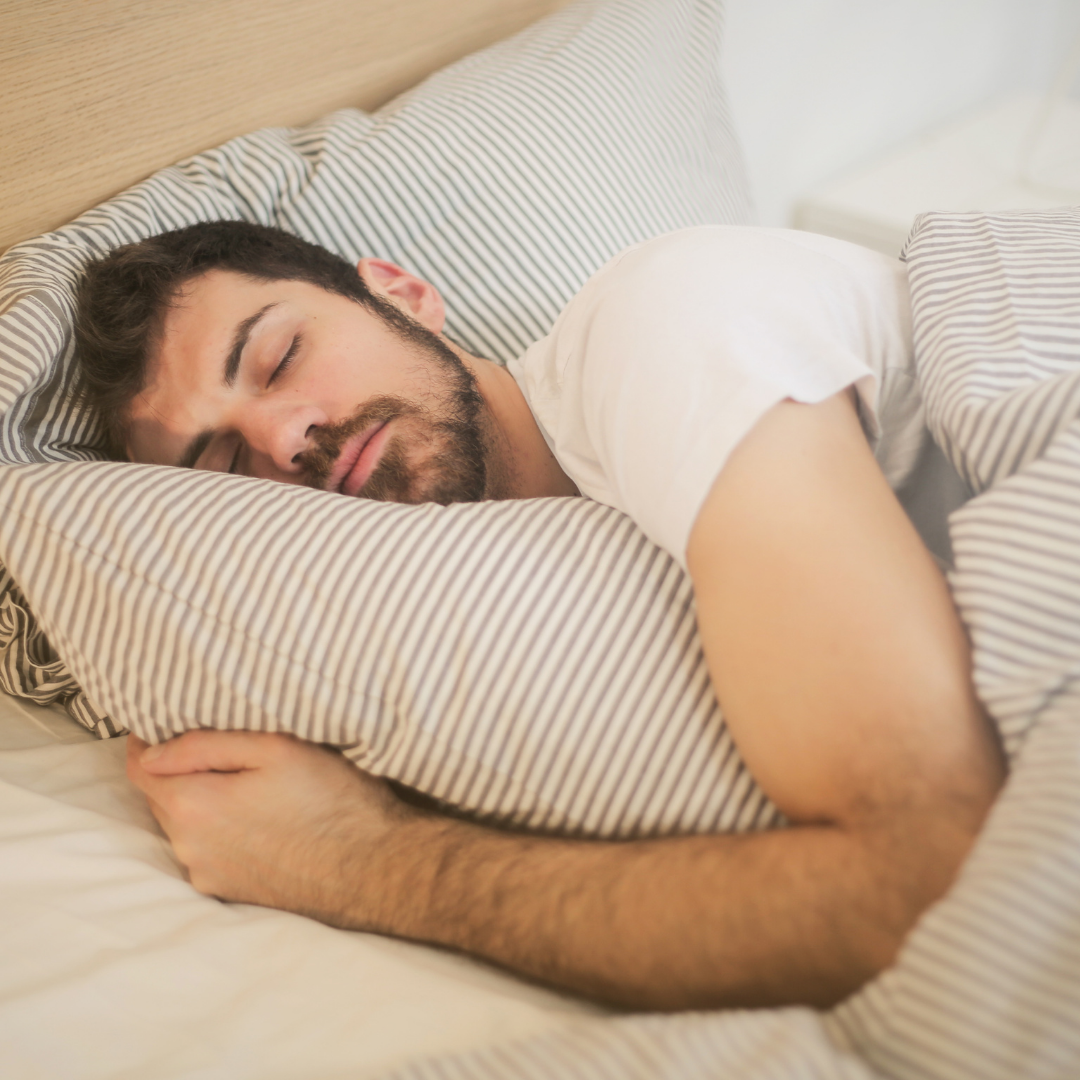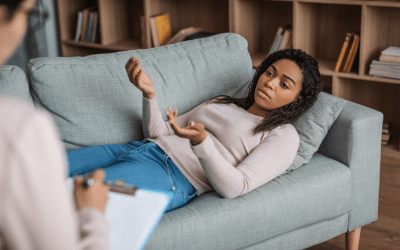
3 Habits That May Be Destroying Your Sleep Quality
This post may contain affiliate links, which means we may receive a commission, at no extra cost to you, if you make a purchase through a link. Please see our full disclosure https://sagecounselingtherapyandwellness.com/disclosure-privacy-policy-terms-of-use/ for further information.
It’s easy to fall into bedtime routines that are familiar to us. For example, if I were to ask you to be honest about how many nights you have worked on homework late into the night and then found comfort in scrolling through TikTok before finally knocking out, I wouldn’t be surprised if you did this fairly often. This is because these habits are ever-so common, no matter how unhealthy they are.
However, I’m not here to shame you. In fact, I’ve been in the same position before I learned about the true importance of quality sleep on one’s physical and mental health. So, let’s tackle the three things most people do that destroy the quality of sleep–look at a screen before bed, keep active before bed, and have varied sleep schedules–and how to change these habits into healthier ones.
First, let’s discuss just how important sleep is. To put it simply, sleep dictates your functioning tremendously. According to a study conducted by H.R. Colton and colleagues[1], sleep deprivation of any kind can greatly impair your day-to-day functioning. For example, your cognitive and behavioral abilities are negatively affected by a lack of sleep, causing symptoms of poor memory, emotional instability, and/or behavioral dysregulation.
Without a proper night’s sleep, you are more likely to have issues problem solving and concentrating on day-to-day tasks, and the risk of this gets increasingly higher the more nights you go without quality sleep. The study also found that a lack of sleep can also negatively impact your mental health, causing higher levels of cortisol (the stress hormone), a higher likelihood of irritability, and heightened depression.
In fact, of the 18 million Americans suffering from depression, over half of them also struggle with insomnia, which shows that there is a relationship between the two. Lastly, your physical health may also be impacted by a lack of quality sleep, with an increased risk of weight gain.
Now that we know just how detrimental a lack of quality sleep can be to your health, how can we fix this issue? If you have ever struggled with a sleep disorder, or just have trouble getting to sleep in general, you’ll know that it can be pretty difficult to deal with. However, have no doubts that creating healthy sleep patterns is doable with some practice and habit-breaking. Below are three habits that are known to destroy the quality of sleep, and how you can go about breaking them.
Bad Habit #1: Looking at a screen before bed.
After a long day at work, it’s nice to curl up in bed and watch your favorite TV show while catching up on what you missed on your Twitter feed or texting a friend. Although these seem like harmless and relaxing activities, staring at a screen right before bedtime can ruin your sleep and keep your mind awake and alert well past the time you decide to finally close your eyes.
Especially with the addictive quality of social media, scrolling through TikTok right before bed may have become a comfort habit of yours, and one that you don’t wish to break anytime soon. However, let’s learn about the science behind these phenomena, and then reassess how you can implement other entertaining, relaxing, and screen-less habits into your bedtime routine.
With the rising popularity of blue light glasses, you may know a bit about how blue light intake is not the healthiest for your eyes. Why is this? Well, blue light, which is found in fluorescent lights, LED lighting, flat-screen TVs, computer screens, and smartphones, contains shorter wavelengths that hold more energy than red light. Red light, which has longer wavelengths, is made when passing white light through a filter.
According to various sleep studies, red light doesn’t seem to interfere with sleep in the way that blue light does[2], which makes it a much healthier form of light to intake before bedtime. Red tinted light bulbs can help with this if you’d like to keep the lights on, but more importantly, you should try to reduce your blue light intake before bed. This means less using your phone and watching TV.
Some alternative activities you can do before bed that are equally as relaxing and fun are reading a book, journaling, knitting, listening to music, taking a bubble bath, and even having some reflection time on your day and what you are grateful for. The latter can help you ease your mind into a meditative state and combat those annoying overthinking thoughts that may keep you up at night. A win-win!
Bad Habit #2: Exercising or being active before bed.
It seems logical that exercising and tiring yourself out before bed would make it much easier for you to become exhausted and instantly fall asleep, right? Wrong! Physical exercise right before bed can actually keep you awake for longer, according to Harvard Health [3]. A research study conducted by Stutz and colleagues [4] found that participants who did high-intensity exercise less than one hour before bed had significant difficulty falling asleep.
However, they also found that participants who did medium-low intensity exercise more than one hour before they went to bed were able to fall asleep significantly faster than before. In conclusion, evening exercise is OK–and can be beneficial–as long as it is completed an hour or more before bedtime. So, when making your workout routine, make sure you either plan on exercising during the day or a few hours before you hit the hay! This will make for much healthier sleep habits.
Speaking of healthy habits, it is also important to mention the importance of what you take into your body and how that affects your sleep life. Avoid substance use before bed, as it is known to stimulate your body and mind into arousal–this includes coffee and alcohol [1]. There are also certain foods you can work into your diet that are known to help with healthy sleep. According to Healthline’s research, some of these foods include almonds, chamomile tea, kiwis, tart cherry juice, and fatty fish (like salmon and tuna) [5].
Bad Habit #3: Not having a set sleep schedule.
Everyone’s body has an internal clock, which controls bodily functions on a schedule automatically. Do you notice yourself getting hungry at around the same time every day? This is because of your internal clock! This is also called a “circadian rhythm”, and one of its most important functions is its sleep/wake cycle. Your circadian rhythm is affected by a bunch of external factors.
One of the largest external factors that affect your sleep cycle is light, which is why we tend to feel more tired when it gets dark out. However, things like looking at a bright screen or keeping your house lights on when it’s dark can mess with your circadian rhythm and keep you awake. In fact, any messing with your circadian rhythm and its natural need for rest, your body will be completely thrown off.
It’s important to listen to your body and make sure you are adhering to its schedule. Since your body naturally gets tired when it’s dark out, make a point of starting to unwind once it gets dark. This is not to say that you must hop into bed and try to sleep as soon as the sun sets, but unwinding can mean relaxing and eating dinner, taking a shower, reading a book, or just having some “me-time” before you get ready to sleep at a normal hour. It’s making sure your body isn’t agitated, and therefore that your rhythm isn’t thrown off by you being up late into the night.
If you find yourself always working at night because you didn’t have time during the day to complete your tasks, this may be a sign that you need to make better schedules for yourself. Cutting out unnecessary tasks, using an agenda to plan your day, or even waking up earlier to do some work in the morning can all help make sure you get to bed at a decent time and get a good night’s sleep!
Bottom line is that sleep is tremendously important for your health, well-being, and daily functioning. Take control over your sleep cycle if you find that it is throwing you off—it’s doable with some effort and practice!
To discuss how therapy could help you during this season of your life, please contact me or schedule your free 15 minute consultation.
Resources Used:
[1]: Institute of Medicine (US) Committee on Sleep Medicine and Research; Colten HR, Altevogt BM, editors. Sleep Disorders and Sleep Deprivation: An Unmet Public Health Problem. Washington (DC): National Academies Press (US); 2006. 3, Extent and Health Consequences of Chronic Sleep Loss and Sleep Disorders. Available from: https://www.ncbi.nlm.nih.gov/books/NBK19961/
[2]: Pietrangelo, A. (2021, February 12). Red light at night: How does it affect your sleep and vision? Healthline. Retrieved April 9, 2022, from https://www.healthline.com/health/why-not-to-have-red-lights-on-at-night#summary
[3] Lewine, H. (2019, April 1). Does exercising at night affect sleep? Harvard Health. Retrieved April 9, 2022, from https://www.health.harvard.edu/staying-healthy/does-exercising-at-night-affect-sleep
[4] Stutz J, Eiholzer R, Spengler CM. Effects of Evening Exercise on Sleep in Healthy Participants: A Systematic Review and Meta-Analysis. Sports Med. 2019 Feb;49(2):269-287. doi: 10.1007/s40279-018-1015-0. PMID: 30374942.
[5] Elliott, B. (2020, August 27). 9 foods and drinks to promote better sleep. Healthline. Retrieved April 9, 2022, from https://www.healthline.com/nutrition/9-foods-to-help-you-sleep#6.-Fatty-fish
Want to read more? Here are a few of my related blog posts you may be interested in checking out:
Check out some of the items mentioned in the blog post above, along with a few extra goodies we think you’ll love!




0 Comments